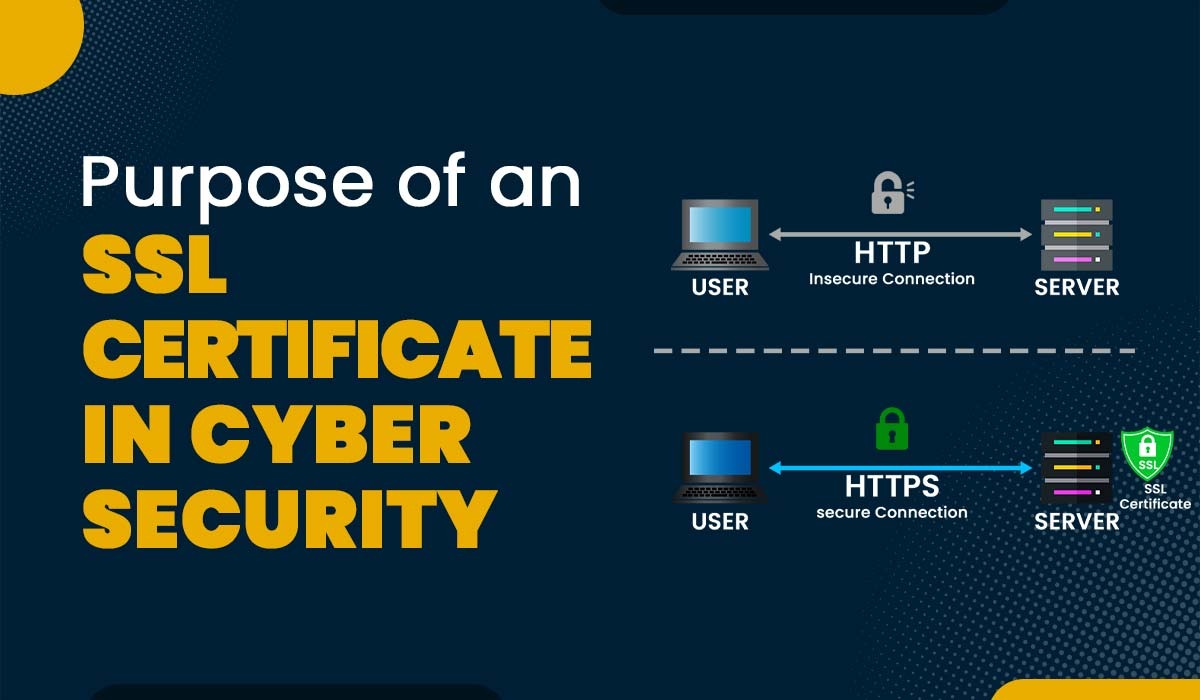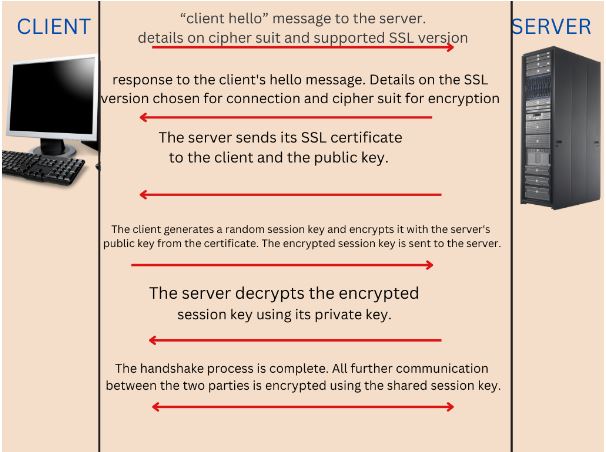What is the purpose of an SSL Certificate in Cyber Security?

This article explores an important aspect of cyber security; the SSL certificate. It explains how the certificate works, what its benefits are, and why it is so crucial in cyber security. We begin with the basic question: What is an SSL certificate in Cyber Security? An SSL certificate is a digital certificate issued by authorized certificate authorities. The certificate confirms the identity of a website and creates encrypted browser-server connections. It is the role it plays in encryption and authentication that makes it an important asset in cybersecurity. With surging levels of data breaches and hackers hitting the headlines day after day, website owners must secure their digital resources. Below are just a few stats that tell you how serious these threats have become. These are very frightening stats. Part of the solution to this menace is buying an SSL certificate for your site. However, a few site owners postpone SSL acquisition until the later stages or until they fall victims to attacks. They mention high SSL prices as reason for non-acquisition. Please note, even a free or cheap SSL certificate will do the job for you. there is no excuse for not having an SSL certificate. SSL is an abbreviation for Secure Sockets Layer. The SSL certificate in Cyber Security encrypts the data exchanged between a web server and a browser. Encryption safeguards data from potential eavesdropping or data tampering. Data may include things like credit card details, passwords, health information, debit cards, and financial information. The process through which an SSL certificate establishes a secure connection is referred to as an SSL handshake. The handshake is essentially the cornerstone of an encrypted connection. During the handshake process, cryptographic keys are exchanged between the website and the server. Encryption algorithms are also negotiated during this stage. A secure connection is established once the SSL connection is complete. Here is a brief illustration of the SSL handshake process: Note: The term TLS (transport layer security) certificate can be used in place of SSL certificate. TLS is a revamped version of SSL, although the name SSL is common. Three crucial SSL elements ensure the secure transfer of data: The SSL certificate in Cyber Security offers many benefits to website owners and visitors. Here are some of the benefits: So, what is the purpose of SSL Certificate in cyber security? To better answer this question, it would be wise to start with another basic question; what is cybersecurity? Cybersecurity is a broad term that encompasses the practice of safeguarding software and hardware resources (computers, mobile phones, data, servers, and networks,) against malicious attacks. The practice entails the application of processes, technologies, protection systems and programs, and controls. The purpose of cybersecurity is to minimize the risk of cyber-attacks. An SSL certificate is one of the most effective tools to use in cybersecurity. Here are four roles it plays: An SSL certificate helps a website to establish an encrypted connection between its servers and users’ browsers. Through encryption, all communications between the website server and users’ browsers cannot be intercepted or read by attackers. Look at encryption as the process of converting raw text data into undecipherable gibberish that cannot be read or deciphered by humans or machines. Encryption happens through the SSL handshake, which we already covered. Hackers can sometimes mimic legitimate websites in an attempt to gain the trust of unsuspecting web visitors. People will visit these websites and unknowingly and willingly give their sensitive information to attackers. The SSL certificate helps mitigate such cases. When certificate authorities issue the SSL certificate, they usually perform their due diligence to ensure the person or organization requesting the certificate is legitimate. Once they have established the legitimacy of the party, the CA will embed some basic information in the SSL certificate. Website visitors can see such information by clicking on the padlock/tune icon or HTTPS in the address bar. A web visitor will doubt the authenticity of a website if they do not see the padlock icon and see HTTP instead of HTTPS in the address bar. The certificate applies cryptographic techniques to detect any unauthorized modifications or tampering with transmitted data. This helps maintain the integrity, accuracy, and reliability of data exchanged between client and server. SSL encryption helps to safeguard sensitive data such as passwords, medical information, and credit and debit card information. It is not possible to access and read this information unless one has the decryption keys. Only the rightful recipients of the information have the decryption keys. Through encryption of sensitive data, the certificate establishes a sense of data privacy by ensuring data remains confidential and protected from prying eyes. Additionally, SSL helps websites comply with data protection regulations (GDPR (General Data Protection Regulation) and HIPAA (Health Insurance Portability and Accountability Act)) by providing a secure framework for the handling of personal and sensitive data. SSL certificates are evolving. As technology changes, so will the certificate. Two major trends will shape the future of SSL certificates: Everyone has a role to play in the fight against hackers. Website owners must ensure their sites are secure and visitors must perform their due diligence to ensure they only visit secure websites. An SSL certificate is an important factor in cybersecurity. This article has explained what an SSL certificate is, how it works, its benefits and purpose of SSL Certificate in cyber security.Introduction
Understanding SSL Certificate in Cyber Security

Elements of the SSL Certificate
SSL Certificate Benefit
Purpose of SSL Certificate in Cyber Security
Data Encryption
Authentication
Integrity
Role in Ensuring Data Privacy
Future Trends and Developments
Conclusion







